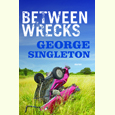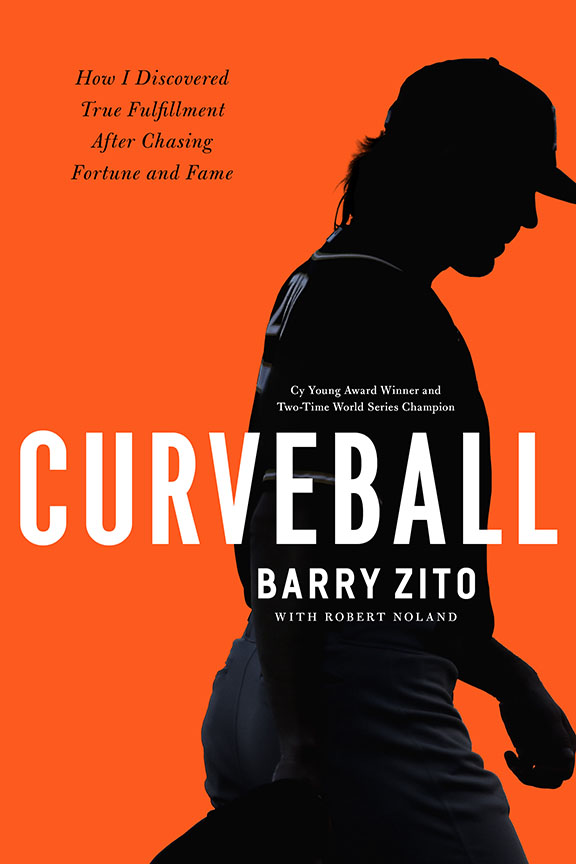Fragile, Broken, Burned
In his new story collection, Richard Bausch digs beneath the tough exterior of his protagonists—male and female alike—to find their fears, weaknesses, and dreams
Perhaps it’s because of his stint in the Air Force. Or his hardscrabble face. Or just his generational proximity to guys’-guy writers like Raymond Carver and Frederick Barthelme. Whatever the reason, Richard Bausch has long been known as a master of macho, a chronicler of men. And it’s true that supposedly “male” themes, like violence, play a critical role in many of his (many, many) short stories and novels—he even titled one of his books Violence.
But as his latest story collection, Something Is Out There, demonstrates, Bausch is, if anything, a master of the anti-macho, a writer who digs beneath the tough exterior of his protagonists—male and female alike—to find their fears, weaknesses, and dreams.
 Unlike so many modern writers, Bausch is never cruel to his characters, no matter how awful they are. He doesn’t poke fun or punish characters for their shortcomings. Byron, the protagonist of “Byron the Lyron,” for example, is a middle-aged gay man whose long-term partner, Reese, leaves him just as his hospital-ridden mother approaches death. To make it worse, Reese is his mother’s former home aide, and he still comes by to visit her. She wants the three of them to be at peace; Byron wants nothing to do with Reese. Ironically, the gay son must learn tolerance and acceptance from his mother to resolve his conflicting emotional storms.
Unlike so many modern writers, Bausch is never cruel to his characters, no matter how awful they are. He doesn’t poke fun or punish characters for their shortcomings. Byron, the protagonist of “Byron the Lyron,” for example, is a middle-aged gay man whose long-term partner, Reese, leaves him just as his hospital-ridden mother approaches death. To make it worse, Reese is his mother’s former home aide, and he still comes by to visit her. She wants the three of them to be at peace; Byron wants nothing to do with Reese. Ironically, the gay son must learn tolerance and acceptance from his mother to resolve his conflicting emotional storms.
More than half of the main characters in the collection are women; aside from Byron, they are also the most successfully composed. For a writer reportedly drenched in testosterone, Bausch has a well-tuned ear for the female voice and an adroit understanding of the female psyche.
Both “The Harp Department in Love” and “Reverend Thornhill’s Wife” focus on women in emotional straits, trying to reconcile their own desires with those of distant and unappreciative partners. In the latter story Diana, after seeing her family off in the morning, has a passionate tryst with a stranger she met online. At first, she tells herself, it’s because her husband isn’t all she had hoped, years ago. A wonderful speaker, he is a dud at home: “Away, he was all the primary colors. Up close, he was beige.” But when her husband comes home that evening, she realizes her yearnings were about more than his shortcomings—she too is failing at the relationship, “feeling time open out, the long prospect of hours, days, weeks, months, years—all of it suddenly far past her, undoable, gone.”
Virtually every story in Something Is Out There includes a broken, or at least fragile, relationship—even the marriage of Paula, the protagonist of the exercise in Hitchcockian suspense that is the book’s title story, is incidentally on the rocks. Oftentimes the feelings aren’t mutual—Reverend Thornhill apparently doesn’t share his wife’s agony; nor does Paula’s husband Kent.
The men in the collection are almost uniformly dense, often angry people, unable to empathize with friends or lovers. They are also, with a few exceptions, the least compelling characters in the book. Often fatherless, they fall flat in negotiating a world populated by strong, or at least complex, female figures. Perhaps the story most tightly focused on the male mind—”Blood,” about a young man lusting after his older brother’s wife, a woman he doesn’t understand but nevertheless convinces himself needs saving—is also the least successful. (Unfortunately, it’s also the longest.)
It may be an unfair comparison, but none of the stories in Something Is Out There quite match up to the tour de force that is The Stories of Richard Bausch, a 2003 collection of his finest short work—and some of the finest short stories written in the last thirty years. Many of the stories here are uneven, with beautiful scene settings and narrative flow marred by astoundingly clunky sentences. While describing a sweltering day outside Washington in the story “Son and Heir,” Bausch writes, “It was like the world was being cooked by the sun, the universe changing badly.” Why even include that last phrase? An already tenuous simile is curdled by a meaningless coda. Then, later in the same story, he writes, “Her motions were those of a person expecting any moment to be set upon by something bad.” How could she know that “something” would be the sentence itself?
The same story, however, includes some fantastic dialog, especially the lines uttered by a confused twenty-something son of overbearing parents, who goes on an ill-fated drug buy. On the subject of his parents, Lyndhurst says, “They picked at each other, when they talked at all. They wore each other down to little shivering lumps. And they wore me down, too.”
If any sentence in the Bausch oeuvre defines his overriding obsession, that is it—the pain we cause each other when we are ourselves in pain. The stories in Something Is Out There may not always rise to Bausch’s usual level of mastery, but they all express what makes him one of America’s most deeply sympathetic writers: a sense for human shortcomings, and the sense to treat those shortcomings with the care and intelligence they deserve.


